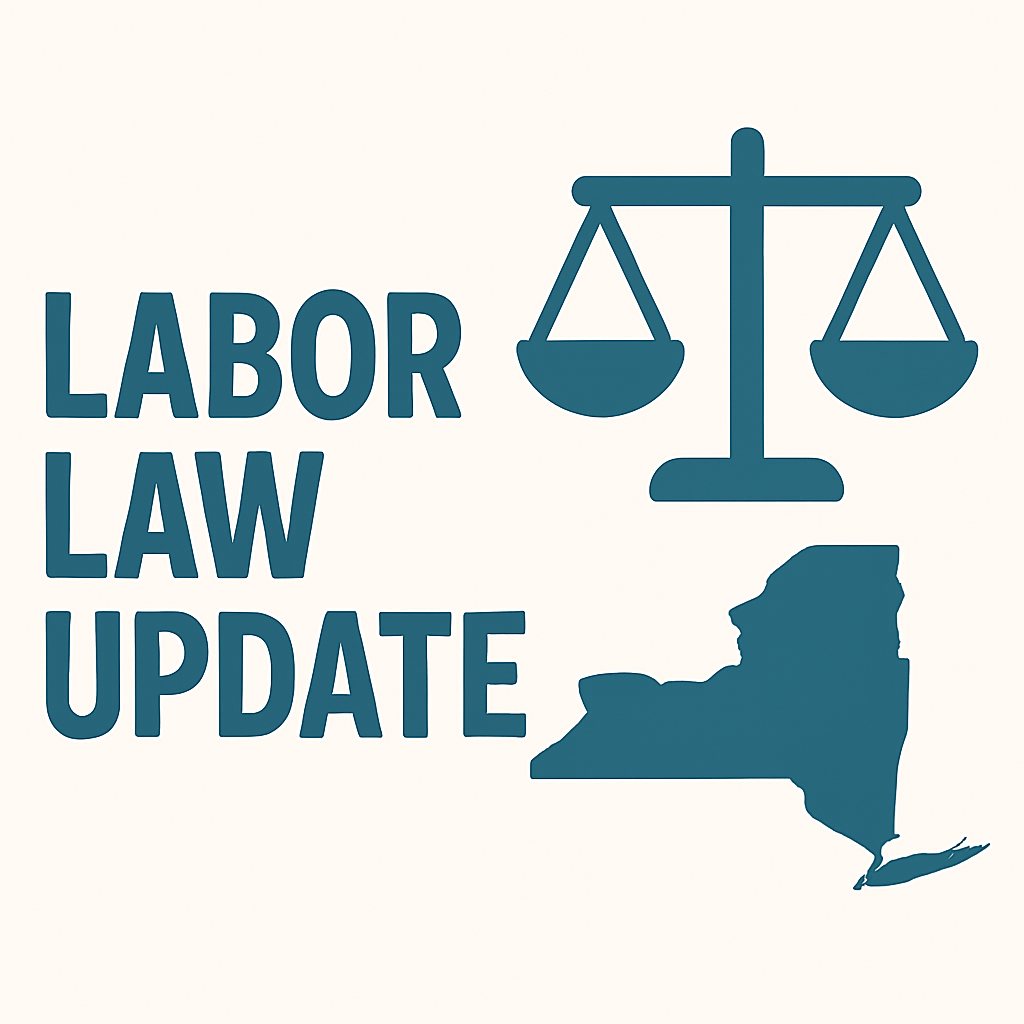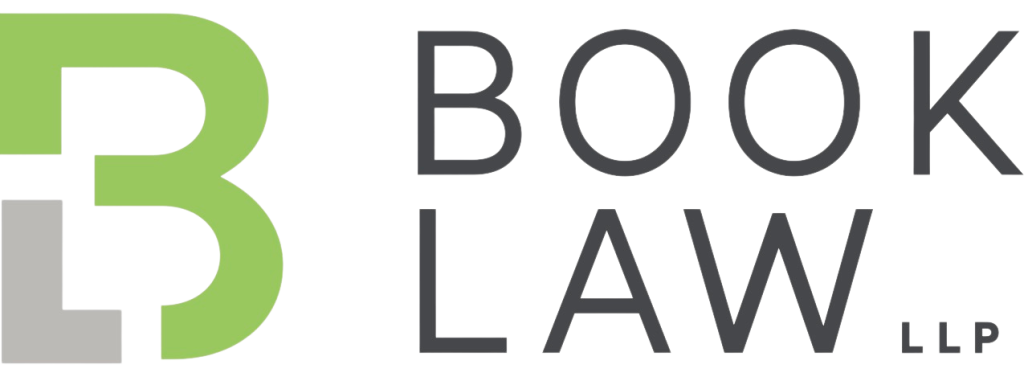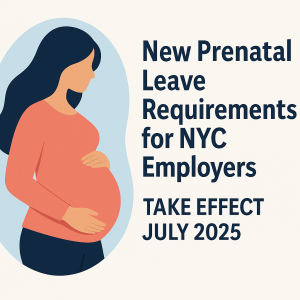Major Labor Law Reforms in New York’s 2025–26 Budget: What Employers Need to Know
May 28, 2025
New York State’s newly enacted 2025–26 budget includes some of the most substantial labor law reforms in years, impacting pay frequency claims, wage collection enforcement, and youth employment rules. Several provisions are already in effect and will directly affect how employers handle payroll and compliance.
Key Changes Now in Effect
1. Pay Frequency Laws — Interest-Only Damages for First-Time Violations
Employers who pay “manual workers” biweekly (rather than weekly) now face interest-only liquidated damages for first-time violations—if they had a good-faith belief their pay practice was lawful. Repeat violations may still result in full damages. This change offers meaningful relief from prior exposure to large class action claims.
2. Enhanced NYSDOL Enforcement Powers
The NY Department of Labor now has “quasi-sheriff” authority:
- It can file wage orders as judgment liens.
- Add a 15% surcharge for unpaid orders.
- Allow employees to directly enforce wage orders, including garnishments and levies.
3. Increased Penalties for Child Labor Violations
Civil penalties have been significantly increased—with fines up to $175,000 for violations involving serious injury or death of a minor.
Changes Coming in 2027
Overhaul of Youth Employment Certification
Starting May 9, 2027, the state will:
- Centralize the youth employment permit process under NYSDOL.
- Require electronic certification via a statewide database.
- Shift permit responsibilities away from school officials to the labor commissioner.
- Require employers to file and destroy certificates according to strict new protocols.
What Employers Should Do Now
- Review pay frequencies, especially for manual workers.
- Train payroll and HR on the revised damages framework.
- Establish procedures for prompt NYSDOL compliance to avoid liens and surcharges.
- Prepare early for the 2027 youth employment changes.
These reforms aim to reduce litigation while boosting collection and enforcement power. But they also create new legal exposure for noncompliance.
For questions or help updating your wage and hour practices, contact Sheryl Galler at sgaller@booklawllp.com or Chaim Book at cbook@booklawllp.com.


